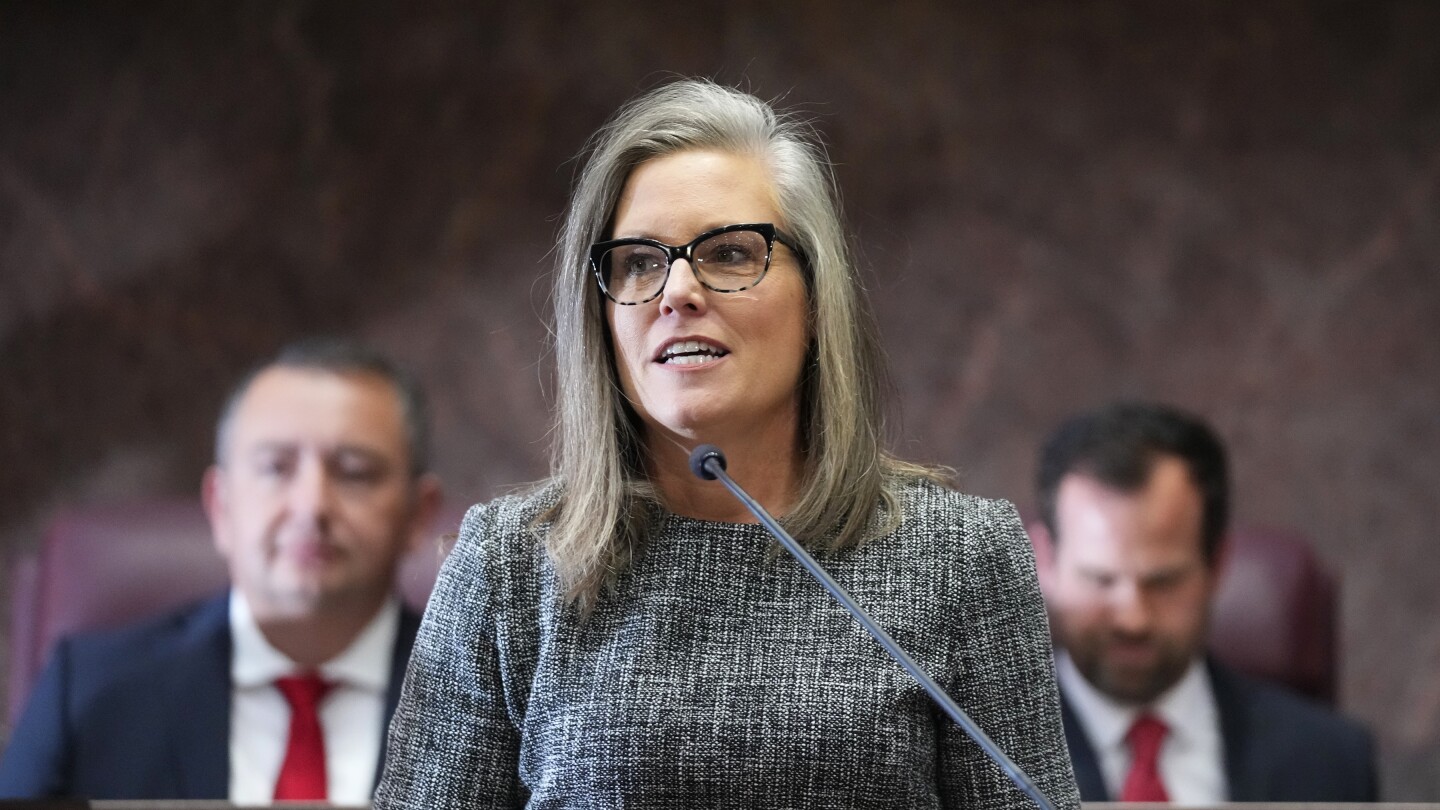A steep budget deficit caused by plummeting tax revenues and escalating school voucher costs will be in focus Monday as Democratic Gov. Katie Hobbs and the Republican-controlled Arizona Legislature return for a new session at the state Capitol.
The Legislative new year officially begins in the afternoon with the governor’s annual State of the State address The goal is to wrap up the legislative session within 100 days, but lawmakers typically go until May or June, especially when there are difficult problems to negotiate like a budget shortfall.
The state had a budget surplus of $1.8 billion a year ago. But it now has a shortfall of about $400 million for the current fiscal year and another $450 million shortfall the year after.
A tax cut approved by legislators in 2021 and signed into law by Hobbs’ Republican predecessor, Gov. Doug Ducey, replaced the state’s graduated income tax with a flat tax that took full effect last year. Arizona subsequently saw a decrease of over $830 million in revenues from income taxes, marking a nearly 30% decline from July through November.



You’re repeating general findings and applying them to a deal with specifics you refuse to understand or even respond too. 200 million barely covers the restoration of the landfill, and more of this offer was privately funded than any other stadium offers period. There simply has not been a better deal for the cities in any major american professional sport than this one, so if you really dislike stadiums seeping public funds maybe support the ones that use less of it. Still waiting to see how much it’s gonna cost taxpayers to clean and reclaim that land on their own burden.
Rich people are not going to stop building stadiums, the government will not stop subsidizing rich peoples anything. This whole debacle says ‘dont bother sweetening the deal, stick with what was working because if they’re gonna say no, they will say no.’
I